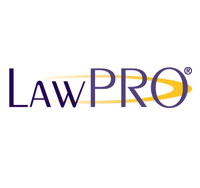What to do if money is diverted to a fraudster’s account?
There are multiple scenarios whereby fraudsters will attempt to have you wire funds to a different account than the one that you had intended to fund. Unfortunately, some of those attempts are successful. LAWPRO has received such claims and heard of many others. Here are some tips to assist you if such a fraud happens… Read More »
Categories: Fraud Prevention







